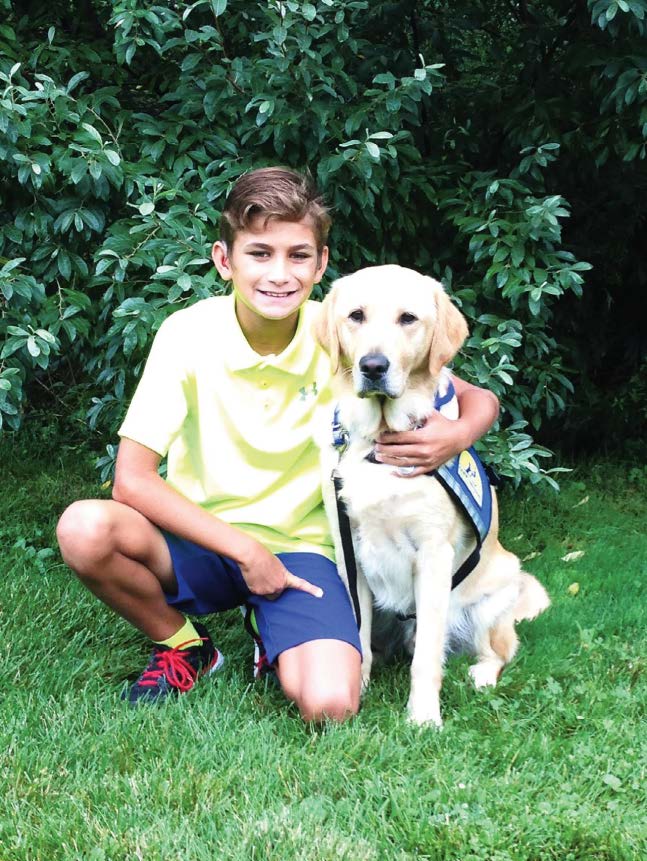I hope I lead by example, since making use of the tools available for a person with a disability is another thing that has been drilled into me from a young age. It doesn't take away from the challenges I face with my disability, it just makes it less difficult or helps me participate in activities that I might not be able to otherwise. Given the challenges many of us experience on a dayto-day basis, it is important to have things available that make life a little more manageable at times I have disability benefits from the state. I use all the necessary accommodation for my university classes, including my FM (Frequency Modulated System). The FM system is an assistive listening device that connects directly to my processors and helps me in noisy environments like a classroom. I have a disability parking placard and the accessibility card for theme parks. I use transit programs for people with disabilities and I have applied for a support service provider for help with going shopping or to appointments. I have an access pass for national parks and have the hidden disability sunflower lanyard and ID card. I will continue to make use of programs that promote access for people with disabilities.
My most treasured resource is Erickson, who joined our family in the summer of 2016 after my mom, brother and I completed the training to receive a service dog from Canine Companions. He's more than just a companion; he is a lifeline. In crowded places or overwhelming situations, Erickson discreetly alerts others to give me space, making navigating hectic environments like New York City at night easier. Trained in a multitude of tasks, Erickson can even help with everyday things when I'm feeling drained. He is not just a service dog; he is a source of comfort and an outlet for life's stresses.
ASK ME WHAT I NEED
When I am sharing my story in any situation, I usually end with my number one piece of advice. Ask me what I need, don't do what you think I need. This is true even for teachers who had my brother Ethan before me, because what works for one person might not work for another. My brother and I may share the same diagnosis, but we each have unique needs related to our deafblindness and balance issues. Having someone assuming they know how to help can be frustrating. Even friends or relatives who know me well or who have experience helping me usually ask, because each situation is different. By asking someone what they need, you show respect for their independence. Depending on the situation, it helps to build trust that someone is genuinely trying to provide support. I have learned to speak up and advocate for myself for what I need. Using my voice is empowering in a life that can be filled with unexpected challenges and frustrations. •
ABOUT THE AUTHOR:
Gavin Morrobel is currently pursuing a combined Bachelor's/Master's degree in Finance at the Rochester Institute of Technology (RIT). He has been educating and spreading awareness about Usher Syndrome type 1b since he was diagnosed in 2009. He is an Advocacy Ambassador for Ava's Voice, an USHmentor at the USHthis camps for youth with Usher syndrome in the US and UK, a DHH Mentor for the NJ Deaf Mentor Program, and was named a National Inspirer by the Cochlear Foundation Achieve Anything Program for his advocacy efforts. Gavin was also one of the recipients of the first ever RIT Microsoft Disability Leader Scholars Program. He has competed across the country in para-athletic events and now participates in a variety of intramural sports at RIT.

MORE THAN A COMPANION: The author with his service dog "My most treasured resource is Erickson, who joined our family in the summer of 2016 after my mom, brother and I completed the training from Canine Companions. He's more than just a companion; he is a lifeline."